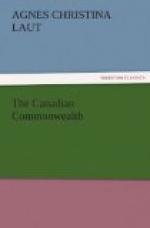It was up in Atlin, British Columbia, a few years after the Klondike rush. Five hundred Japs had come tumbling into the mining camp, seemingly from nowhere, in reality from Japanese colonies in Hawaii. The white miners warned the Japs that “it wouldn’t be a healthy camp,” but mine owners were desperate for workers. Wages ran at from five to ten dollars a day. The Japs were located in a camp by themselves and put to work. On dynamite work, for which the white man was paid five to ten dollars, the Jap was paid three and five dollars. Still he held on with his teeth, “dogged as does it,” as he always does. Suddenly the provincial board of health was notified. There was a lot of sickness in the Jap camp—“filthy conditions,” the mine owners reported. The board of health found traces of arsenical poisoning in all the Jap maladies. The Japs decamped as if by magic.
Simultaneously there broke out from Alaska to Monterey the anti-Jap, anti-Chinese, anti-Hindu agitation. California’s exclusion and land laws became party planks. British Columbia got round it by a subterfuge. She had the Ottawa government rush through an order-in-council known as “the direct passage” law. All Orientals at that time were coming in by way of Hawaii. Ships direct from India were not sailing. They stopped at Hong Kong and Hawaii. The order-in-council was to forbid the entrance of Brown Brothers unless in direct passage from their own land. That effectually barred the Hindu out, till recently when a Japanese line, to test the Direct Passage Act, brought a shipload of Hindus direct from India to Vancouver. Vancouverites patrolled docks and would not let them land. A head tax of five hundred dollars was leveled at John Chinaman. That didn’t keep John Chinaman out. It simply raised his wages; for the Chinese boss added to the new hand’s wages what was needed to pay the money loaned for entrance fee. A special arrangement was made with the Mikado’s government to limit Japanese emigration to a few hundreds given passports, but California went the whole length of demanding the total exclusion of Brown Brothers.
Why? What was the Pacific Coast afraid of? When the State Departments of the United States and Canada met the State Department of the Mikado, practically what was said was this. Only in very diplomatic language:
Whiteman: “We don’t object to your students and merchants and travelers, but what we do object to is the coolies. We are a population of a few hundred thousands in British Columbia, of less than three million in the states of the Pacific. What with Chink and Jap and Hindu, you are hundreds of millions of people. If we admit your coolies at the present rate (eleven thousand had tumbled into one city in a few months), we shall presently have a coolie population of millions. We don’t like your coolies any better than you do yourself! Keep them at home!”
This conversation is paraphrased, but it is practically the substance of what the representative of the Ottawa government said to a representative of the Mikado.




